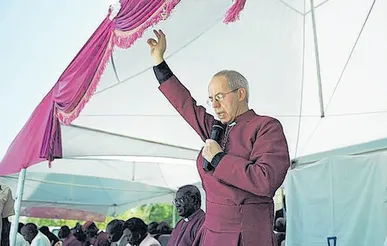
Persevering in South Sudan
Chris Sugden and Alice Madgwick
On December 15, 2013, gunfire erupted in
Juba and led to a conflict that has raged
throughout South Sudan for several weeks.
Fleeing, fighting and bloodshed, reminiscent
of the recent civil war, will carry long-term
consequences on the country’s development.
The current unrest began as a political
struggle between forces
loyal to President
Salvir Kiir and those loyal to former vice-president Riek Machar. Kiir accused Machar
of an attempted coup, while Machar blames
Kiir for firing on forces loyal to the former
vice-president. Two
opposing
political
groups emerged and proceeded to battle one
another, particularly
in
Jonglei and
the
Upper Nile states. Thousands of civilians
have died and over 770,000 have fled their
homes. ‘We spent all night running without
sleep. We were so tired and thirsty, nowhere
to get water. We slept in the bush; a lot of
insects bitten us enormously. No showering
for many days and wearing same clothes for
the last seven days’, said an NGO worker
who fled Bor.